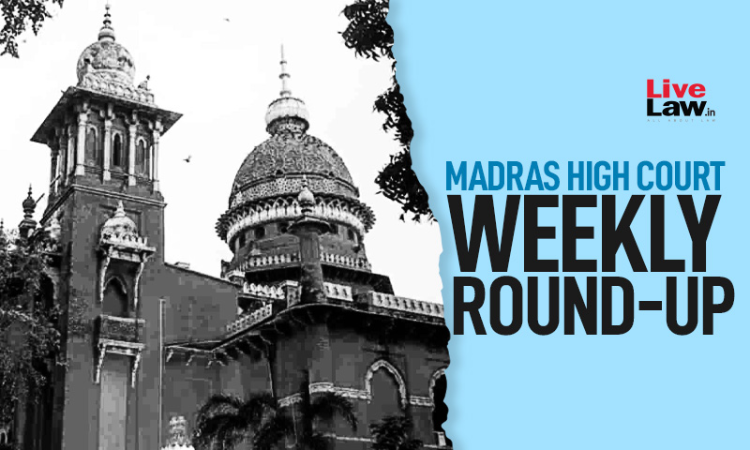Madras High Court Weekly Roundup: April 11 to April 17 2022
Upasana Sajeev
17 April 2022 10:08 PM IST

Next Story
17 April 2022 10:08 PM IST
A weekly round-up of important cases from Madras High Court and its subordinate courts. Citations: 2022 LiveLaw (Mad) 147 To 2022 LiveLaw (Mad) 162 NOMINAL INDEX Dr. P. Vijayan v. The Union Of India and Ors., 2022 LiveLaw (Mad) 147 S.V Ramamurthy v. The Secretary, Government of TN, 2022 LiveLaw (Mad) 148 A Pitchaiah v. The Managing Director and Ors, 2022 LiveLaw...
